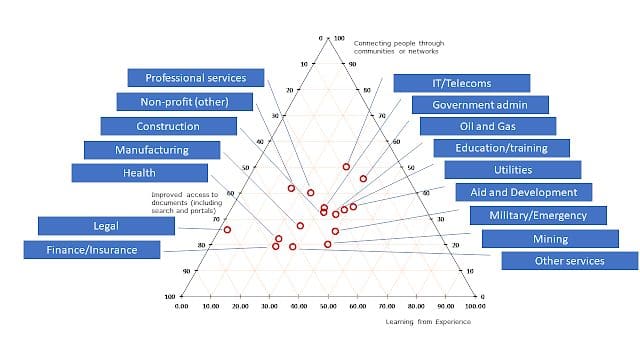Favorite There are a number of strategic approaches that you can apply when implementing Knowledge Management. All have their failings – we recommend a combination of two of them. There are many and varied ways to introduce KM to a company, and a lot of these fail. The main 6
Read More
 Shared by Nick Milton December 6, 2019
Shared by Nick Milton December 6, 2019
Favorite Today at AWS re:Invent 2019, I’m excited to announce the AWS Machine Learning (ML) Embark program to help companies transform their development teams into machine learning practitioners. AWS ML Embark is based on Amazon’s own experience scaling the use of machine learning inside its own operations as well as
Read More
 Shared by AWS Machine Learning December 6, 2019
Shared by AWS Machine Learning December 6, 2019
Favorite I blogged recently about Connect and Collect – the two parallel approaches to transfer of knowledge. Now let’s look in more depth about the two modes by which knowledge is carried – Content and Conversation. Kids of conversation by Kris Hoet on Flickr During the Connect approach we facilitate
Read More
 Shared by Nick Milton December 5, 2019
Shared by Nick Milton December 5, 2019

Favorite The lesson learning system should be a supply chain for new knowledge. But how do you calculate its effectiveness? We can look at lesson learning as a supply chain; identifying new pieces of knowledge and supplying them to other knowledge workers so they can improve their work. If it
Read More
 Shared by Nick Milton December 4, 2019
Shared by Nick Milton December 4, 2019

Favorite We are excited to announce Amazon Transcribe Medical, a new HIPAA-eligible, machine learning automatic speech recognition (ASR) service that allows developers to add medical speech-to-text capabilities to their applications. Transcribe Medical provides accurate and affordable medical transcription, enabling healthcare providers, IT vendors, insurers, and pharmaceutical companies to build services
Read More
 Shared by AWS Machine Learning December 4, 2019
Shared by AWS Machine Learning December 4, 2019

Favorite Two of the most popular machine learning models used today are BERT, for natural language processing (NLP), and Mask R-CNN, for image recognition. Over the past several months, AWS has significantly improved the underlying infrastructure, network, machine learning (ML) framework, and model code to achieve the best training time
Read More
 Shared by AWS Machine Learning December 4, 2019
Shared by AWS Machine Learning December 4, 2019

Favorite Knowledge that “everyone knows” but which is quite wrong, it termed “General ignorance” and is a dangerous component of KM. QI stage-set from wikimendia commons There is a highly amusing TV quiz here in the UK, called QI. One section of the show is called “General Ignorance”, and consists
Read More
 Shared by Nick Milton December 3, 2019
Shared by Nick Milton December 3, 2019

Favorite Since the launch of AWS DeepRacer, tens of thousands of developers from around the world have been getting hands-on experience with reinforcement learning in the AWS Management Console, by building their AWS DeepRacer models and competing in the AWS DeepRacer League for a chance to be crowned the 2019
Read More
 Shared by AWS Machine Learning December 2, 2019
Shared by AWS Machine Learning December 2, 2019

Favorite AWS is excited to introduce Amazon SageMaker Operators for Kubernetes, a new capability that makes it easier for developers and data scientists using Kubernetes to train, tune, and deploy machine learning (ML) models in Amazon SageMaker. Customers can install these Amazon SageMaker Operators on their Kubernetes cluster to create
Read More
 Shared by AWS Machine Learning December 2, 2019
Shared by AWS Machine Learning December 2, 2019

Favorite If you are interested in how different industries approach KM, here is a new way to differentiate them. Different industries tend to approach KM in different ways, or apply KM in “different flavours.” In September I posted a ternary plot, where different industries were plotted on their relative focus
Read More
 Shared by Nick Milton December 2, 2019
Shared by Nick Milton December 2, 2019
![]() Shared by Nick Milton December 6, 2019
Shared by Nick Milton December 6, 2019





